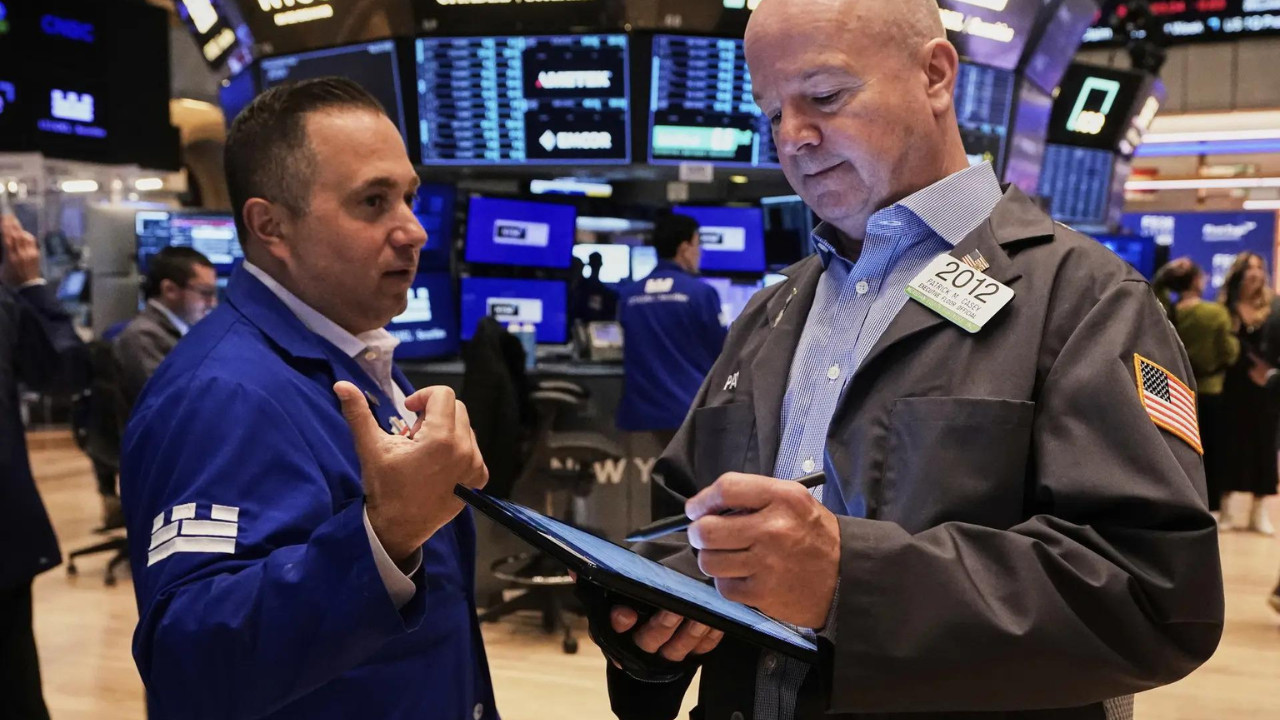American stock market saw a dip on Friday. Investors are considering various company earnings reports. There is uncertainty about tariffs imposed during Donald Trump’s presidency. Gap Inc. shares fell due to tariff concerns. Ulta Beauty shares rose after a positive financial outlook. Alphabet, Google’s parent company, awaits a verdict in an antitrust case.
Wall Street Wobbles: Tariff Threats, Inflation Whispers, and What it All Means for Your Wallet
Okay, deep breath. Let’s talk about Wall Street. It’s not always a thrill ride, more often a slow, steady climb punctuated by the occasional stomach-dropping dip. And right now? Well, it’s feeling a little…queasy.
You probably caught wind of the performance on Thursday, May 30th. The big indexes, the Dow, the Nasdaq, the S&P 500 – all ended up taking a tumble. It wasn’t a catastrophic plunge, more like a controlled descent. But the reasons behind it are worth unpacking because they’re tied to things that affect your financial life, even if you don’t obsessively track the stock market.
Let’s start with the elephant in the room: tariffs. Remember those? They’re back in the conversation, thanks to some strong rhetoric emanating from, well, you know who. The prospect of renewed trade friction, particularly with China, always injects uncertainty into the market. And uncertainty, as any seasoned investor will tell you, is the enemy of upward movement.
Think of it this way: companies rely on smooth supply chains and predictable costs to make profits. Tariffs throw a wrench into that machinery. They make imported goods more expensive, potentially squeezing profit margins for businesses that rely on those goods. This ripple effect is felt across various sectors, dampening enthusiasm and leading investors to, perhaps understandably, pull back a bit.
Now, let’s layer in the second ingredient to this market cocktail: inflation. We’ve been playing this inflation game for a while now, haven’t we? Inflation stubbornly refuses to fall as quickly as everyone – especially the Federal Reserve – would like. The latest inflation data, while showing some cooling, wasn’t exactly a victory parade.
The implication here is pretty straightforward: the Fed might hold off on cutting interest rates anytime soon. And higher interest rates are like a gravity pull on the market. They make borrowing more expensive for businesses, potentially slowing down economic growth. They also make bonds a more attractive investment option compared to stocks, diverting capital away from the equity market.
It’s a bit of a balancing act, really. The Fed is trying to cool down the economy enough to tame inflation, without causing a full-blown recession. Easier said than done, right?
So, you’ve got the specter of tariffs rattling international trade and stubborn inflation complicating the interest rate picture. What’s a responsible investor to do?
Well, first of all, panic is rarely a good strategy. Market volatility is normal, even healthy, in the long run. It’s a natural part of the economic cycle. Instead of reacting emotionally, it’s a good time to take a step back and review your portfolio.
Are you comfortable with your current asset allocation? Is your portfolio diversified enough to weather potential storms? These are the kinds of questions to be asking yourself.
It’s also worth remembering that these market dips can sometimes present opportunities. If you’ve been eyeing a particular company or sector, a temporary pullback could be a chance to buy in at a more favorable price. (But always do your research first! Don’t blindly follow the herd.)
Consider also your investment timeline. If you’re investing for the long term, say retirement, a short-term market dip is unlikely to derail your overall strategy. It’s the long game that matters most.
Ultimately, navigating these turbulent waters requires a cool head, a long-term perspective, and a solid understanding of your own risk tolerance. This market wobble serves as a good reminder to stay informed, stay diversified, and, most importantly, stay calm. The economic seas may be choppy right now, but with a well-charted course, you can still reach your destination. Now is a good time to reassess your route, consult with your financial advisor, and ensure your sails are properly trimmed. Good luck navigating the ride!
📬 Stay informed — follow us for more insightful updates!







